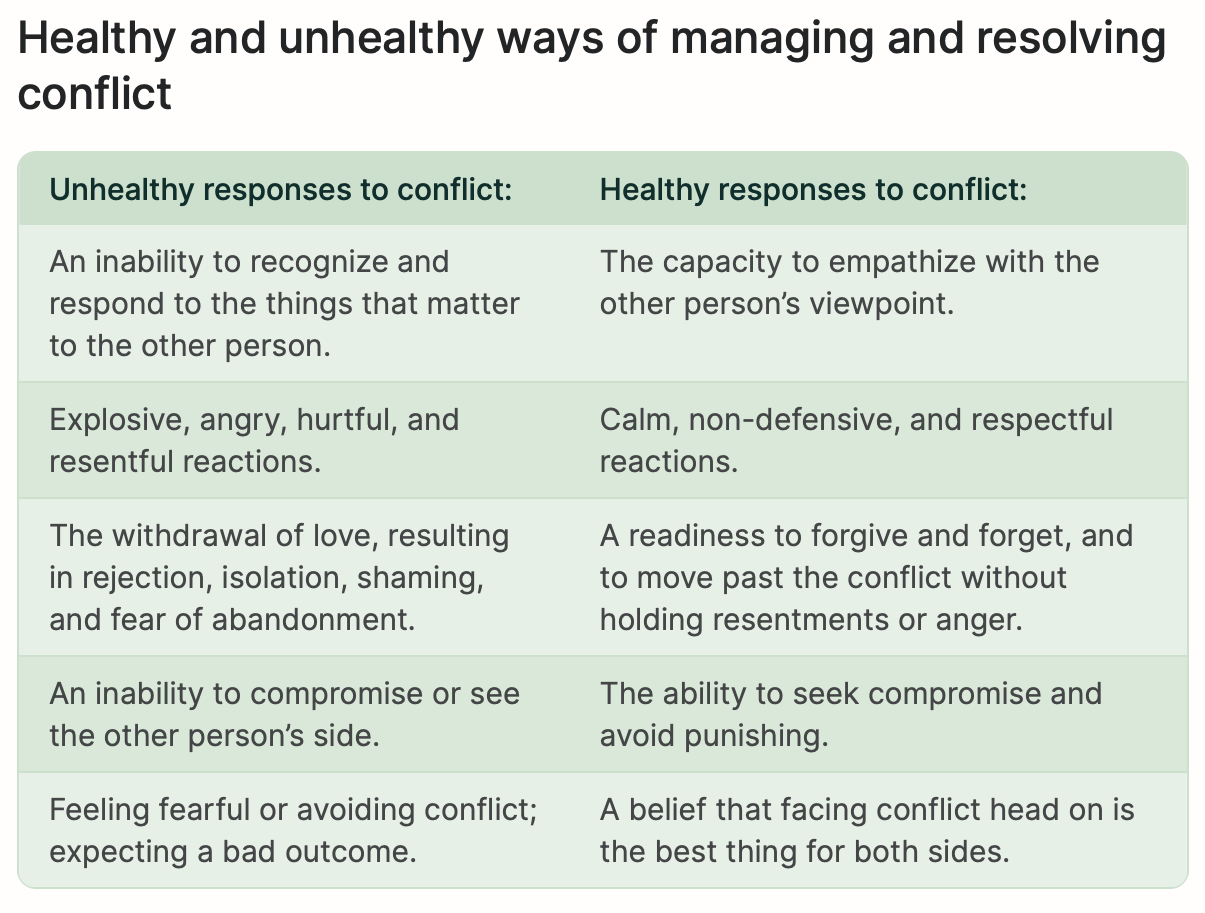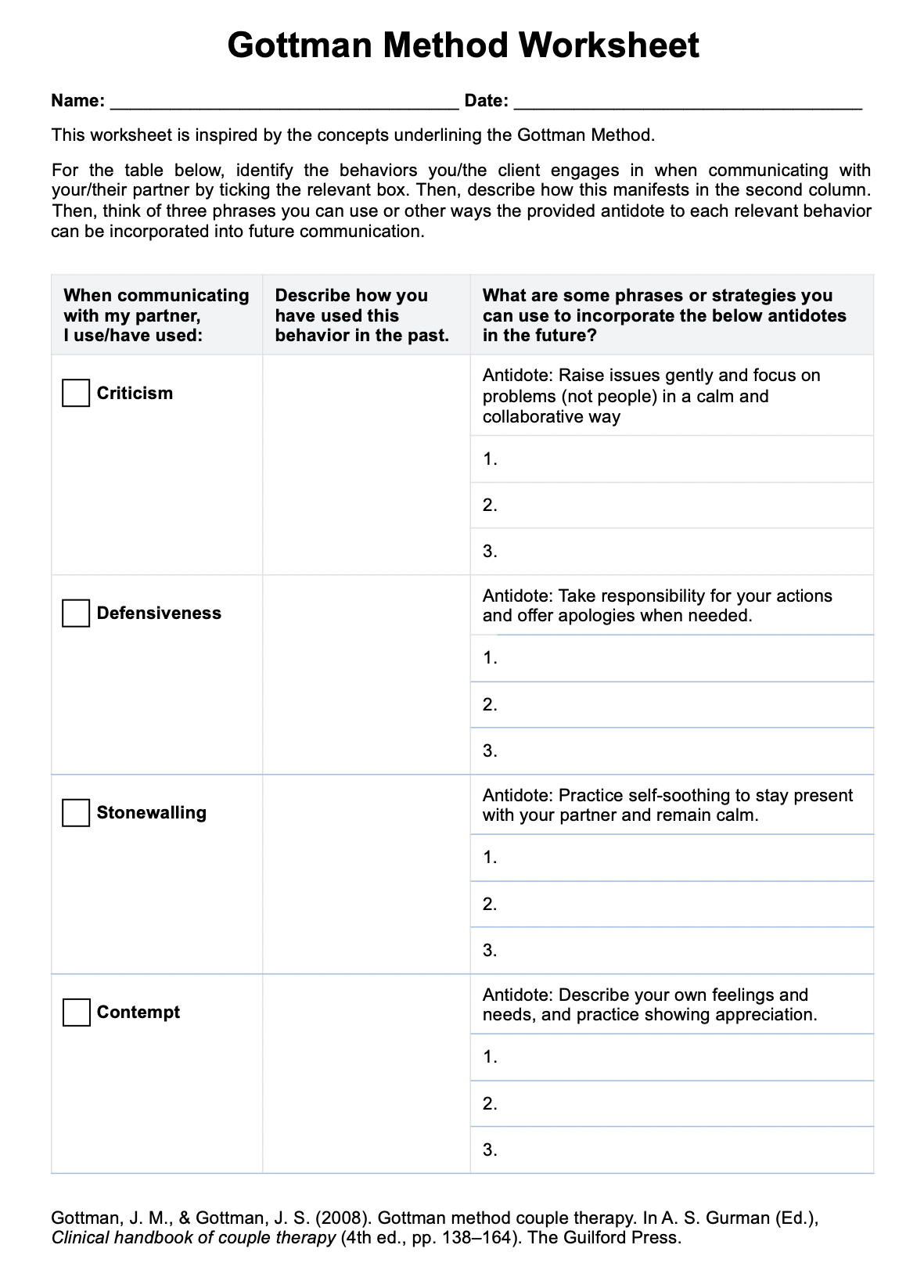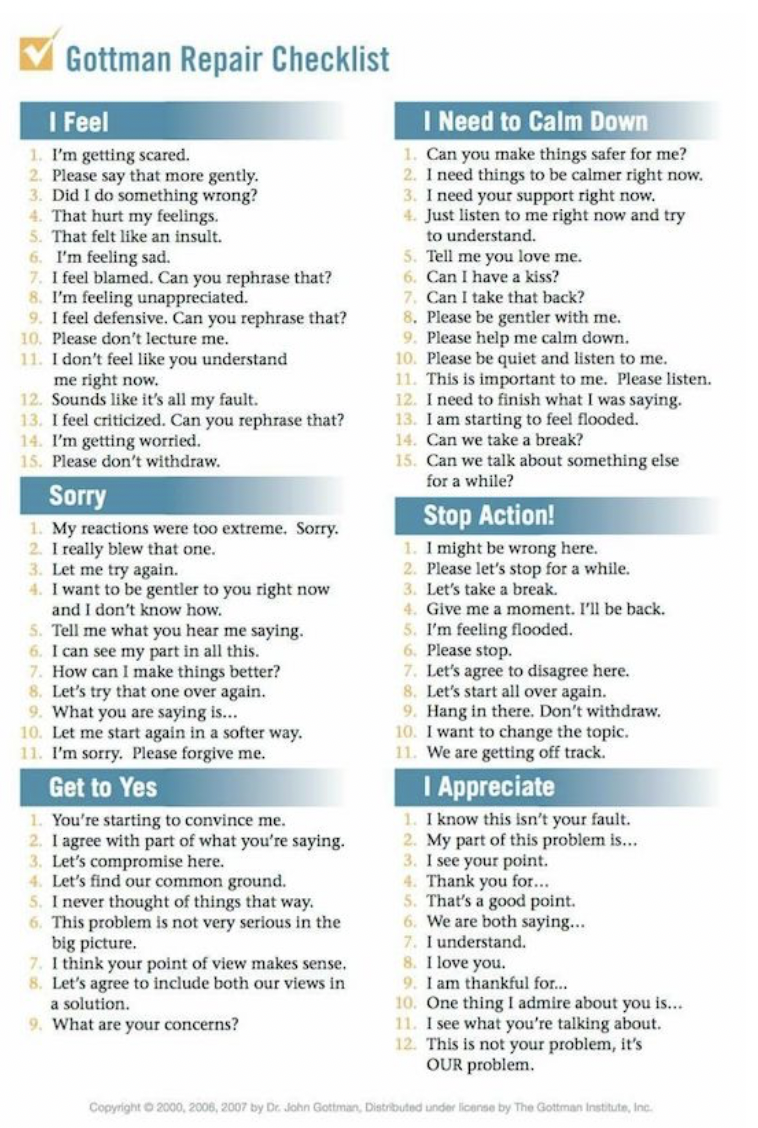Relationship Worksheets
-
Examining Core Beliefs
Core beliefs shape how we perceive ourselves, others, and the world around us, and this influences our thoughts and behavior. Sometimes, this can have a negative effect on our lives, especially if we hold a negative core belief. Read the list of core beliefs and identify any that resonate.
-
Boundary Explorations
Boundaries communicate our limits or rules and help us feel safe. Boundaries are a form of self-care, and they tell others our personal expectations, values, and how we want to be treated. Review the various types of boundaries here.
-
Relationship Expectations
Our expectations in a relationship can be a cause of conflict, especially if each person places a different value on certain expectations. For instance, your partner may feel completely clear about their values and needs, but may not communicate those expectations to you, so you may feel confused when you don’t meet their expectations. It’s helpful to explore these expectations with your partner so that you can assess how reasonable those expectations are and use these expectations to set realistic and clear boundaries.
-
Aftermath of Fight
The Aftermath of a Fight exercise by Dr. John Gottman is a structured approach to help couples process conflicts in a healthy and constructive way. It guides partners through reflecting on their emotions, understanding each other’s perspectives, and taking responsibility for their part in the disagreement. By fostering open communication and emotional validation, this tool helps repair relationship ruptures and build deeper connection, trust, and resilience.
-
ADHD & Marriage
Melissa Orlov and other top ADHD experts provide information, programs and support for couples impacted by ADHD. What's different about partnerships in which one or both adults has ADHD? What are the common themes for couples with ADHD? What strategies can be used to improve these relationships? How can struggling couples get their relationships back on track so both partners can thrive? We know all about ADHD and relationships and are here to support your journey, growth and success.
-
The Gottman Method for Couples Counseling is a research-based approach to relationship therapy developed by Drs. John and Julie Schwartz Gottman. It focuses on strengthening and deepening relationships by teaching couples practical tools to improve communication, manage conflict, and foster emotional connection. Grounded in over four decades of research, the Gottman Method emphasizes building a sound relationship foundation, creating shared meaning, and supporting individual dreams and aspirations. By addressing specific areas like trust, intimacy, and emotional regulation, this method helps couples navigate challenges, enhance their relationship, and build a resilient partnership that thrives over time.
-
This framework is central to the Gottman Method and outlines seven key levels to a healthy relationship. Couples work on building a "Sound Relationship House" through the following:
Building Love Maps: Understanding each other’s world by becoming familiar with each other's likes, dislikes, hopes, and fears.
Sharing Fondness and Admiration: Fostering a culture of appreciation and respect, and focusing on positive aspects of the relationship.
Turning Toward Each Other: Building emotional support through small, everyday interactions that strengthen the bond between partners.
The Positive Perspective: Creating a mindset of optimism and focusing on the good in each other and the relationship, especially when dealing with conflict.
Managing Conflict: Learning to resolve differences through healthy communication strategies and reducing the impact of negativity in interactions.
Making Life Dreams Come True: Supporting each other’s personal goals and dreams, and creating shared meaning in life.
Creating Shared Meaning: Developing a sense of purpose and meaning within the relationship, based on shared rituals, goals, and values.
-
These are four negative communication patterns that can predict relationship breakdowns. Couples work to recognize and replace these with healthier behaviors:
Criticism → Replace with a gentle startup.
Contempt → Replace with respect and appreciation.
Defensiveness → Take responsibility for part of the issue.
Stonewalling → Take breaks and re-engage with calm, open communication.





Podcast Suggestions
Have you ever wondered why you lose it sometimes, and say things you regret later? Or why you get to a certain point where you just cannot talk anymore, and shut down? These are both examples of emotional flooding: Lashing out and withdrawing are two sides of the same coin. Both can be disastrous for your relationship. On today’s episode we’re talking about the reality of emotional flooding, and how to manage it effectively when you’re “coming in hot.”
- Dr. Lisa Marie Bobby
Cycle of Abuse Wheel:


